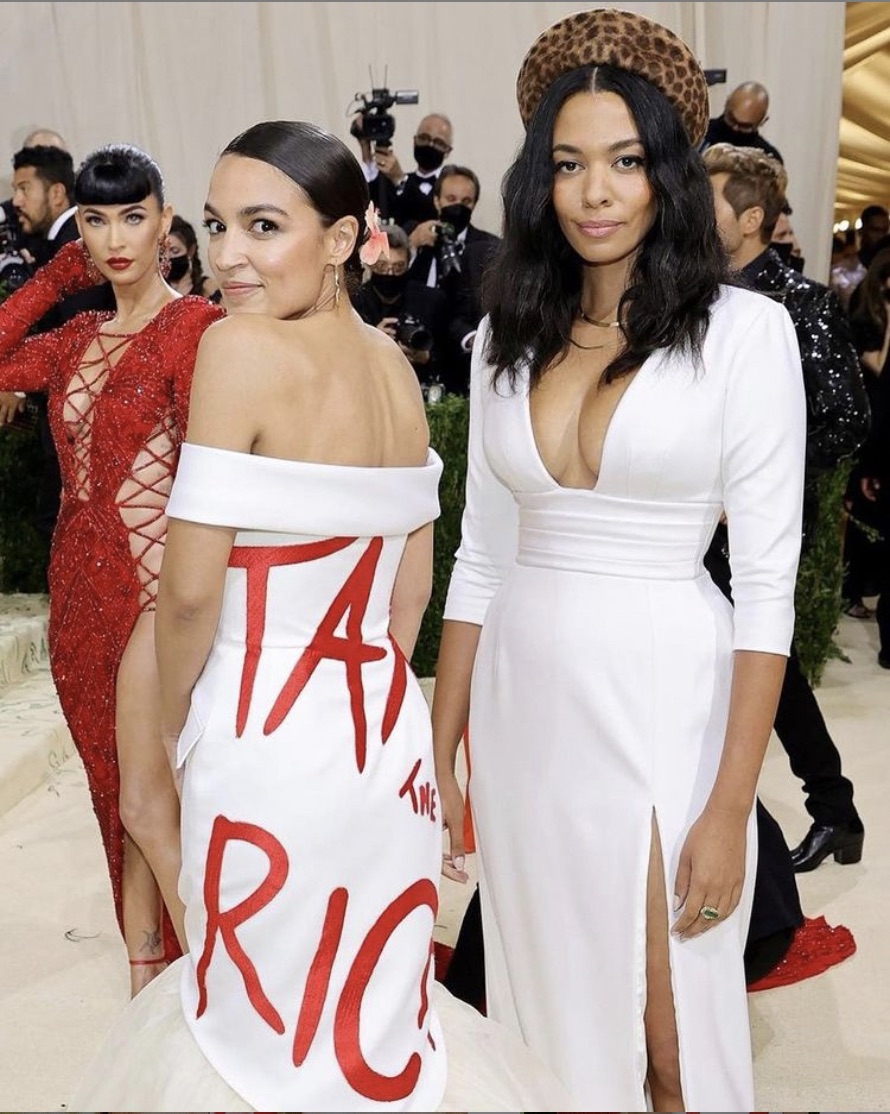Every year, the nation’s wealthiest and most famous gather at the Metropolitan Museum of Art for a night filled with haute couture and over-the-top fashion statements. As they parade on the red carpet, regular citizens without fashion degrees or expertise administer ratings, praising those whose looks are on-point and judging those who miss the mark.
While this may have been fun and frivolous in the past, something about this year’s event felt short.
Against the backdrop of racial injustice, political divide and a global pandemic, American culture has undergone a radical shift in the last two years. Particularly, fashion in the United States has become political, with issues like diversity, sustainability and elitism dominating the conversation.
Of course, this found its way onto the red carpet Monday night, where many of the fashion looks doubled as social commentary.
Think Cara Delevingne’s white suit and “peg the patriarchy” vest. Saweetie making a nod to her heritage with the Black American and Filipino flags. Billie Eilish wearing Oscar de la Renta after pressuring the designer to go fur-free.
We also cannot overlook the now-infamous “eat the rich” gown worn by Congressional Representative Alexandria Ocasio-Cortez. Even if it was borrowed, sustainably sourced and designed by a Black female immigrant, there is still a lack of self-awareness, as if “eat the rich” means we would not eat her first.
The thing about celebrities making political statements is that they often come off as tone-deaf and hypocritical. The irony of Ocasio-Cortez’s dress, even though she herself did not pay to attend and wore a dress given to her for free, is that she criticized the wealthy while attending an event that charged $30,000 for a ticket and $275,000 for a table for others.
Some argue that such a high-profile, elitist event is the wrong place for activism, especially the performative kind. After all, what does wearing phrases like “eat the rich” or “peg the patriarchy” actually do in terms of tangible action and reform?
Attendees themselves have spoken out against the political implications of the event, including the sense of performative activism involved.
Indya Moore, transgender model and star of “Pose,” announced on Instagram that this year’s Met Gala would be their last, then called out the event as a whole.
“We organize millions for a museum, on stolen land that black and brown people suffer on unless white supremacy thinks they are exceptional, but not for the people,” Moore said. “Can’t we be substantially generous in ways that alleviate suffering and poverty?”
Moore’s comment raises a point that others have echoed online: if celebrities and designers want to advocate for social justice issues, maybe their money would be better spent donating to those causes instead of an art museum.
Simply, the Met Gala did not give what needed to be gave. It may have been fun in the past, but after living through the tumult of last year and its ongoing effects, Monday’s grandiose spectacle served as a reminder that we live in different versions of America.
Featured image taken from Instagram @aurorajames.






